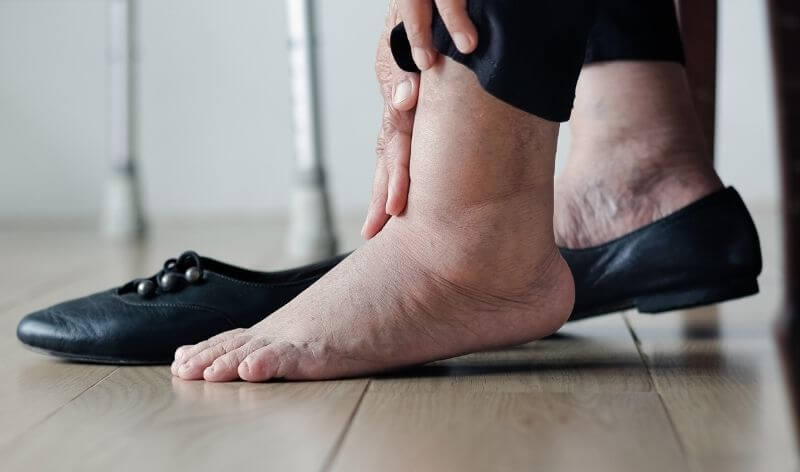Lymphoedema and Diet
Do you suffer from lymphoedema and have been told just to lose weight? As Dietitians, we see all too often situations where inflammatory conditions such as Lymphoedema are misdiagnosed as simple Obesity. We at Tree of Life Nutrition acknowledge that weight is a factor in the management of Lymphoedema. However, it is just that, one single factor amongst a range of vital steps in managing this condition. Lymphoedema and diet strategy can be utilised for a range of aspects relating to lymphoedema if used correctly.
It’s about finding a dietary strategy that does three essential things:
- Is a diet that can be accepted and followed
- Is aimed not at weight loss and reducing fat mass in specific areas,
- But more importantly, is a diet that looks to reduce the pain and discomfort of our patients.
Ultimately, we’re looking at improving quality of life.

What is lymphoedema? (definitions and statistics)
Lymphoedema is characterised by excessive amounts of protein-rich fluids causing swelling of certain parts of the body (commonly in arms and legs), caused by problems with the lymphatic system. The lymphatic system is a network of tubes throughout the body that drains this fluid (called lymph) from tissues and empties it back into the bloodstream. When this system isn’t working properly, lymphoedema can occur. Around 300,000 Australians will experience lymphoedema at any given time.
So, what makes up nutritional management of this condition?
Revitalising and maintaining a healthy gut microbiome
Addressing any pre-existing gut health issues and presenting symptoms such as bloating and distension, abdominal pain, flatulence, or bowel discomfort is an underestimated, but vital step in the dietary management of Lymphoedema. Ensuring we have a balanced and diverse microbiome extends beyond the gut. The impact of this step is an important foundation for our lymphoedema and diet strategies. At Tree of Life Nutrition, we place an emphasis on addressing the gut through our individualised gut microbiome fix where we provide patients with a personalised supplement and dietary regime over a four-week period. Check out our approach to gut health in more detail.

Anti-inflammatory Diet (The Mediterranean Diet)
The Mediterranean Diet is one of the most evidence-based diets and leads the way for an anti-inflammatory diet. The key features of the Mediterranean Diet are low in saturated fat, but high in unsaturated (healthy) fats. Low in refined sugars and carbohydrates, but high in whole grains and fibre. At Tree of Life Nutrition, our dietitians specialise in applying the Mediterranean Diet. Check out the dedicated page for the Mediterranean Diet.

General weight-loss strategies
Weight loss strategies look different for everyone, dependent on weight, level of physical activity, and lifestyle. Reduced caloric intake can look different for everyone, and above all, it is important to find a strategy that is not merely a weight-loss strategy, but a LIFESTYLE strategy. This ensures dietary changes are manageable and long term, rather than searching for the quick fix we can be guilty of searching for.

Sodium Restriction
Water retention and oedema can be key factors in the severity of Lymphoedema. Excess salt in the diet is not only linked with high blood pressure, but generalised oedema also, therefore providing the justification why sodium restriction is beneficial. Excess salt in the body acts as a sponge and retains water which can leak into interstitial tissue spaces, where it appears as oedema or swelling.

Finding an approach that works for you
Amongst all of the above lymphedema and diet management strategies, there is plenty of room for individualised approaches. What may work for one person, may not work for the next. Therefore, it is beneficial to seek guidance from your Tree of Life Dietitian to tailor your approach. There is no such thing as a one size fits all approach in managing Lymphoedema through the diet.
